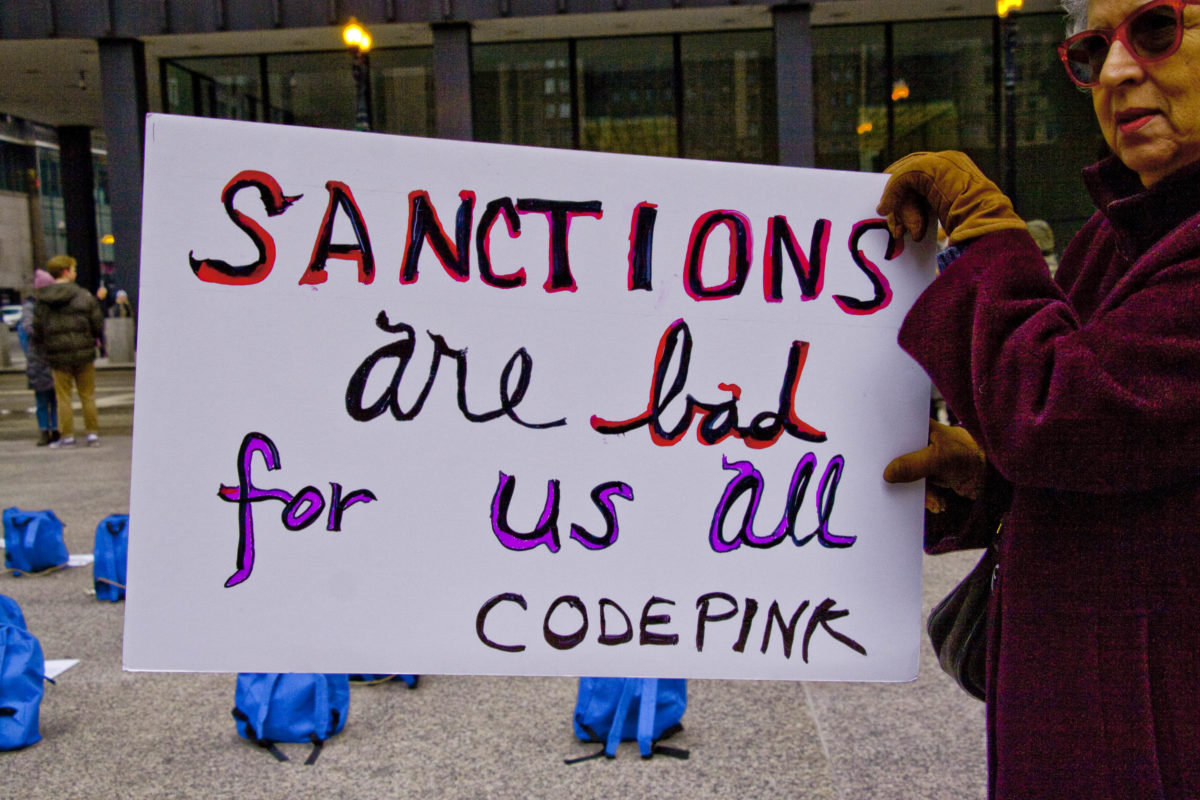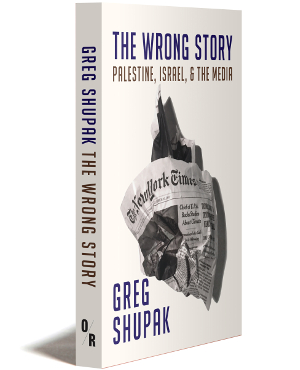In June, a group of international lawyers sued the European Union for crimes against humanity at the International Criminal Court (ICC). The lawyers claim that when the EU switched to a policy of deterring refugees trying to cross the Mediterranean in 2014, in particular trying to prevent Libyan refugees from fleeing their destroyed state, they killed thousands of refugees and sent tens of thousands more back to Libya to be enslaved, tortured, raped, and killed.
As a symbolic gesture, the lawsuit is powerful. But the possibility of getting justice for Libyan refugees from the ICC is practically nonexistent.
In fact, the ICC bears some responsibility for the destruction of the Libyan state that led to the refugee crisis in the first place. When the United States decided to overthrow Gaddafi in 2011, it had the UN Security Council make a “referral” of the Libyan situation to the ICC. There were some peculiarities in the details of the referral as well: the ICC was directed to investigate the situation in Libya, exempting non-state actors, since February 15, 2011. “It would appear,” scholar Mark Kersten writes in a chapter in the 2015 book “Contested Justice” (pg. 462), “that the restriction to events after 15 February 2011 was included in order to shield key Western states… In the years preceding the intervention, many of the same Western states that ultimately intervened in Libya and helped overturn the regime had maintained close economic, political and intelligence connections with the Libyan government.” The African Union, led by the South African president, tried to broker a peace deal between Gaddafi and the rebels: Gaddafi accepted, but the rebels refused. For them, Gaddafi had to go. And the ICC investigation strengthened their hand. In Libya, the ICC was harmful to a negotiated solution.
In general, the ICC prefers war to negotiated peace. As scholar Phil Clark pointed out in his 2018 book “Distant Justice” (pg. 91): “… the ICC has expressed immense skepticism toward peace negotiations involving Ugandan and Congolese suspects whom it has charged — especially when those talks involve the offer of amnesty — but has strongly supported militarized responses to these suspects and their respective rebel movements. In short, the ICC has viewed ongoing armed conflict rather than peace talks as more useful for its own purposes.” The president of the DR Congo’s Truth and Reconciliation Commission told Clark in an interview (pg. 223): “The ICC came up forcefully in our discussions with several rebel leaders… We would start talking to them, make good progress, then the conversation would stop. They didn’t want to incriminate themselves, even when we stressed that the amnesty was in place.” In the DR Congo, the ICC made offers of amnesty less credible. Rebel leader Mathieu Ngudjolo was pardoned in 2006, integrated into the army, promoted to the rank of colonel, and then arrested on an ICC warrant 18 months later: the government’s “duplicity toward an amnesty recipient undermined the broader use of amnesty as an incentive for members of rebel groups to disarm” (pg. 203).
The ICC’s careful selection of when it investigates crimes (like limiting its Libya investigation to crimes after February 15, 2011, or its predecessor the International Criminal Tribunal for Rwanda limiting its investigation to crimes committed after the assassination of the Rwandan president on April 6, 1994) is mirrored in its careful selection of where it investigates and where it ignores. Take the DR Congo again: the ICC limited its mandate to the province of Ituri. Horrific violence took place in Ituri, but there was less violence overall than in the Kivu provinces (especially North Kivu). Why didn’t the ICC investigate in the Kivus? Because in the Kivus, the worst crimes were committed by armed groups supported by Rwanda and Uganda, favored U.S. allies in the region. When Sri Lanka’s government killed tens of thousands of people at the end of its counterinsurgency war against the Tamil Tigers in 2009, the ICC wrung its hands: Sri Lanka wasn’t a signatory to the Rome Statute that empowered the ICC.
The ICC gets even twistier when it comes time to prevent accountability for Israel. After the Goldstone report on Israel’s massacres in Gaza in 2008/9, Palestinians tried to bring a suit to the ICC against the Israeli generals and politicians who organized them. David Bosco reports in his book Rough Justice(pg. 162) that the Israelis met with Ocampo and “pressed Moreno-Ocampo to determine quickly that Palestine was not a state and that the court could therefore not accept its grant of jurisdiction.” The Americans told Ocampo “that they saw little value in ‘criminalizing the world’s longest running and most intractable regional dispute.’” Moreno saw the light: “The prosecutor’s long-awaited decision on Palestine — released in April 2012… more than three years after Palestine asked the court to investigate, the prosecutor decided that it was not his role to determine Palestine’s legal status.” The massacred Palestinians were colonized, and therefore stateless. Only states can sign the Rome Statute and bring the ICC in. Therefore, the ICC had no jurisdiction over the 2008/9 massacres of the Palestinians.
When the U.S. and UK saw no benefit to having the ICC involved in Afghanistan, the ICC prosecutor (Bosco, pg. 163): “limited himself to occasional private requests and put no pressure on involved states. That approach contrasted sharply with his willingness to sharply chastise states for their failure to enforce existing arrest warrants.”
Given the proclivity of the Western coalition in Afghanistan for bombing weddings and operating death squads (sometimes euphemistically called “kill teams”), their squeamishness in the face of potential legal probes is understandable. The ICC, like its predecessor tribunals on Rwanda and Yugoslavia, fully understands that the U.S. and UK are exempt from its brand of justice. Bosco (pg. 66) quotes British Foreign Minister Robin Cook speaking about the international tribunal after the Kosovo war in 1999: “If I may say so, this is not a court set up to bring to book Prime Ministers of the United Kingdom or Presidents of the United States.” Legal scholar Hans Kochler, writing in 2003 (pg. 178), quoted NATO spokesman Jamie Shea, who responded, when asked if he would accept the International Criminal Tribunal for Yugoslavia (ICTY)’s jurisdiction over NATO officials: “… I think we have to distinguish between the theoretical and the practical. I believe when Justice [Louise] Arbour starts her investigation, she will because we will allow her to. It’s not [Serbian President Slobodan] Milosevic that has allowed Justice Arbour her visa to go to Kosovo to carry out her investigations. If her court, as we want, is to be allowed access, it will be because of NATO… So NATO is the friend of the Tribunal, NATO are the people who have been detaining indicted war criminals for the Tribunal in Bosnia.”
NATO’s spokesman reminded the world that as a “practical” matter, since it was Western militaries and police services that provide the law enforcement services to the ICC, these Western militaries wouldn’t subject themselves to the ICC’s justice. The second ICTY prosecutor, Carla Del Ponte, admitted her dependence on NATO forces and the partiality of justice that ensued (quoted in Bosco pg. 66): “if I went forward with an investigation of NATO, I would not only fail in this investigative effort, I would render my office incapable of continuing to investigate and prosecute the crimes committed by the local forces during the wars of the 1990s.”
The ICC’s prosecutors depend on Western forces to make arrests and renditions. The ICC also recycles intelligence material from these Western countries into evidence against ICC suspects. This should be a legal problem: intelligence material is not evidence. There are many people trapped in Kafkaesque situations precisely because courts used intelligence materials — which are best guesses and probabilities used to inform police and military actions usually before events occur — as evidence, which should consist of provable facts intended to hold people accountable after the fact. Canadian academic Hassan Diab — imprisoned in France based on a similar-sounding name in a notebook from an intelligence agency interrogation — is just one example.
There was a time, decades ago, when the ICC was forming, when American and Israeli officials were actually worried about the prospect of a court that had universal jurisdiction. Suddenly, U.S. officials talked about national sovereignty. At that time you could hear John Bolton arguing that it was a bad idea “assert the primacy of international institutions over nation-states.” Bolton was very explicit about his problems with the U.S. being a party to the ICC, as quoted by Mahmood Mamdani in 2008:
“‘Our main concern should be for our country’s top civilian and military leaders, those responsible for our defense and foreign policy.’ Bolton went on to ask ‘whether the United States was guilty of war crimes for its aerial bombing campaigns over Germany and Japan in World War II’ and answered in the affirmative: ‘Indeed, if anything, a straightforward reading of the language probably indicates that the court would find the United States guilty. A fortiori, these provisions seem to imply that the United States would have been guilty of a war crime for dropping atomic bombs on Hiroshima and Nagasaki. This is intolerable and unacceptable.’ He also aired the concerns of America’s principal ally in the Middle East, Israel: ‘Thus, Israel justifiably feared in Rome that its pre-emptive strike in the Six-Day War almost certainly would have provoked a proceeding against top Israeli officials. Moreover, there is no doubt that Israel will be the target of a complaint concerning conditions and practices by the Israeli military in the West Bank and Gaza.’”
Near the end of his term, Clinton signed the Rome Statute. At the beginning of his term, George W. Bush had Bolton “unsign” it, and negotiate bilateral agreements with the countries of the world that they would never hand Americans over to any international courts. The U.S. went even further, passing in 2002 the Armed Service-Members Protection Act, which includes the line: “The United States is not a party to the Rome Statute and will not be bound by any of its terms. The United States will not recognize the jurisdiction of the International Criminal Court over United States nationals.” Then the U.S. got the Security Council to pass resolutions enshrining U.S. immunity.
Israel also never signed the Rome Statute, which is why its officials are now arguing that the ICC has no jurisdiction in an ICC suit about another massacre it committed, this time on a boat trying to relieve the Gaza siege in 2010.
The powerful are exempt from the ICC’s justice. But the U.S. does believe in a kind of universal jurisdiction: its own. Kochler (2003, pg. 106) cites an internal Department of Justice memorandum from the George H.W. Bush era stating the opinion that the FBI has the power “to apprehend and abduct a fugitive residing in a foreign state when those actions would be contrary to customary international law.” That memo was from 1989, and it was about arresting Manuel Noriega, the president of Panama who fell afoul of the U.S., whose country was bombed and invaded, and who was taken away to jail.
The ICC won’t be doing anything for Libyan refugees or the victims of Israel’s massacres, but it continues to make strong statements about Sudan’s now ousted president Omar al-Bashir, who is wanted for crimes committed as part of a counterinsurgency campaign in Darfur. The trial of an African leader from an enemy state, more than a decade after the crimes took place: now this is where the ICC shines.
In 2008, writing about the ICC’s arrest warrant for al-Bashir, Uganda-based scholar Mahmood Mamdani warned that the ICC was becoming a tool of neocolonial domination. The theory implicit in the ICC’s interventions, he wrote, “…turns citizens into wards. The language of humanitarian intervention has cut its ties with the language of citizen rights. To the extent the global humanitarian order claims to stand for rights, these are residual rights of the human and not the full range of rights of the citizen. If the rights of the citizen are pointedly political, the rights of the human pertain to sheer survival… Humanitarianism does not claim to reinforce agency, only to sustain bare life. If anything, its tendency is to promote dependence. Humanitarianism heralds a system of trusteeship.” And what is an empire if not a system of trusteeship?
The ICC provides no legal counterbalance to the arrogance of an empire’s power. It is the empire’s court.
This article was produced by Globetrotter, a project of the Independent Media Institute.



